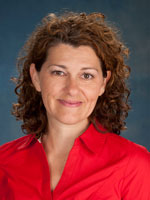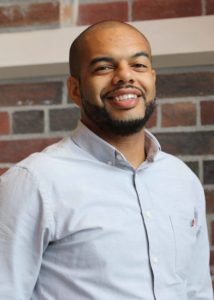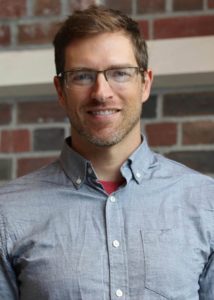 Sanja Ilic, Associate Professor, Human Nutrition
Sanja Ilic, Associate Professor, Human NutritionDuring this project, Sanja Ilic will work with Iowa State University and other North Central Partners as the State Lead to assist in identification of diversified and underserved grower and processor populations that require education, training and technical assistance to ensure successful implementation and compliance with the FSMA Produce Safety rule and Preventive Control for Human Foods rule. The project will involve providing feedback on food safety curriculum for growers and processors, communicating compliance needs, disseminating information and materials about produce safety, and connecting food safety educators in Ohio to the project.

 Drew Hanks, Associate Professor, Consumer Sciences
Drew Hanks, Associate Professor, Consumer Sciences Steven Stone-Sabali, Assistant Professor, Department of Educational Studies
Steven Stone-Sabali, Assistant Professor, Department of Educational Studies Jay Plasman, Assistant Professor, Department of Educational StudiesJay Plas
Jay Plasman, Assistant Professor, Department of Educational StudiesJay Plas Barbara Boone, Program Director of Family Engagement
Barbara Boone, Program Director of Family Engagement Laura Justice, Professor; Executive Director of the Crane Center for Early Childhood Research and Policy (CCEC)
Laura Justice, Professor; Executive Director of the Crane Center for Early Childhood Research and Policy (CCEC) Matthew Brock, Associate Professor
Matthew Brock, Associate Professor Belinda Gimbert, Associate Professor, Educational Studies
Belinda Gimbert, Associate Professor, Educational Studies